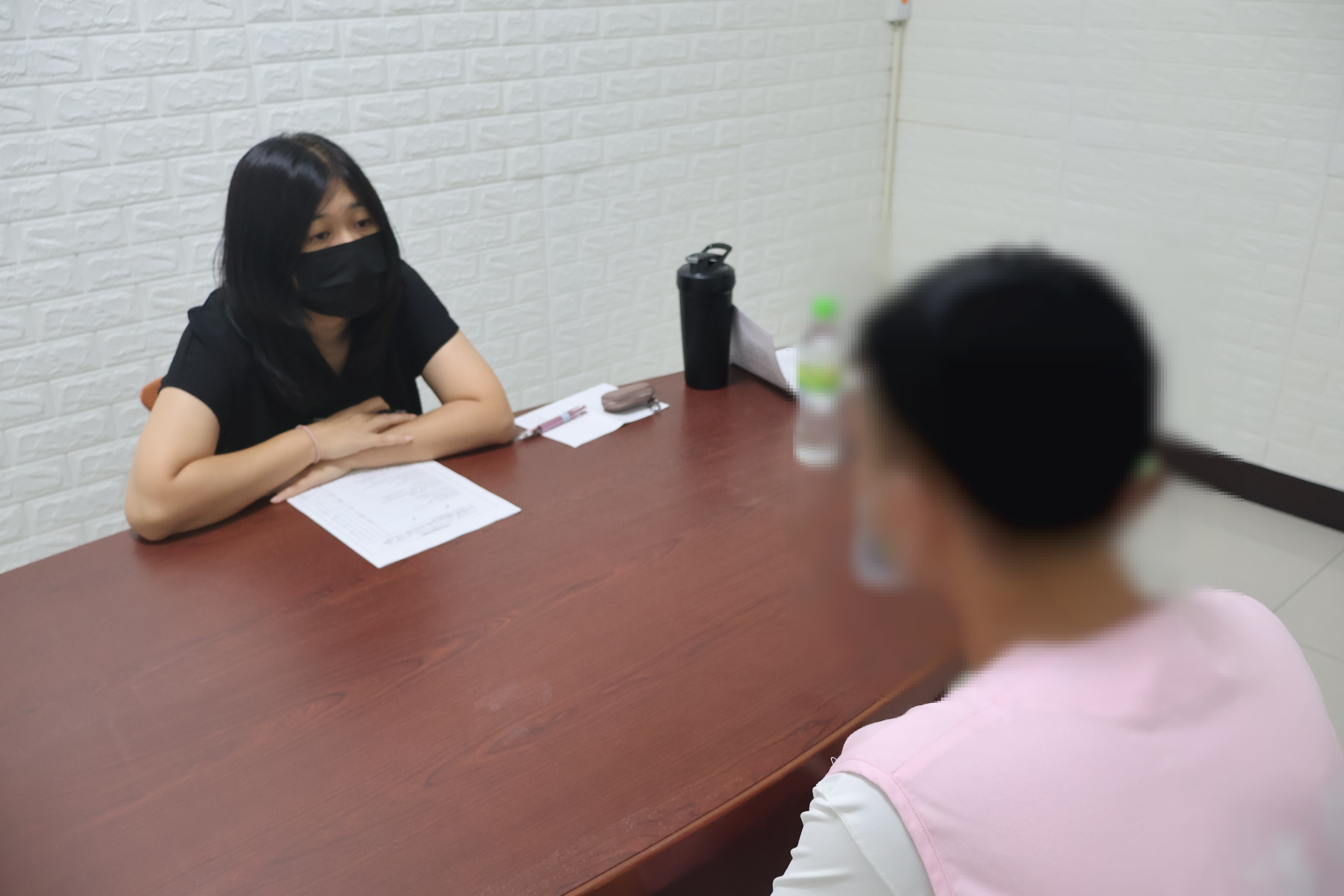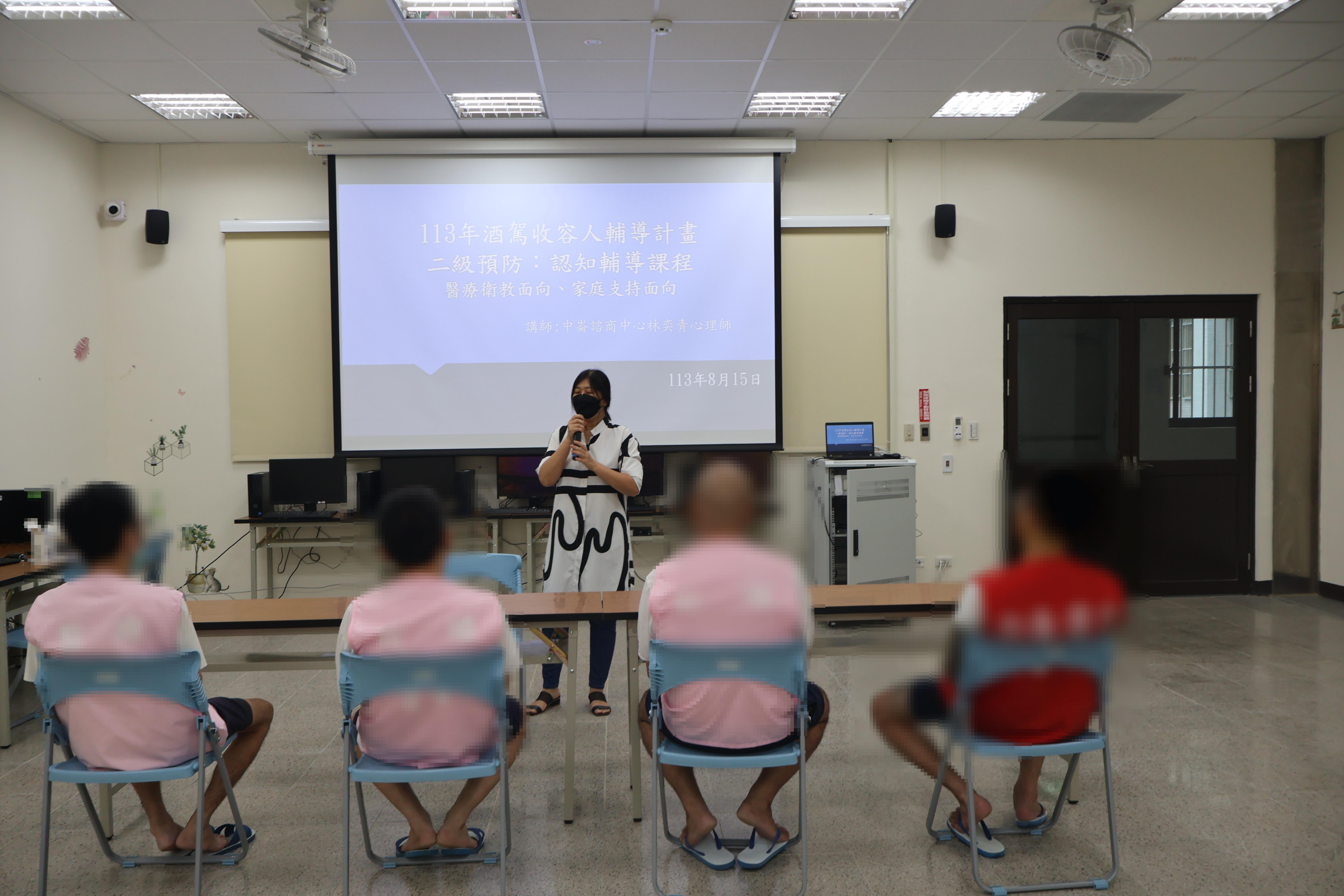Positive change in drinking habits through cognitive counseling!
- Publication Date :
- Last updated:2024-08-29
- View count:246
Diversified Treatment of Drinking and Driving Inmates
In order to enhance the self-efficacy and motivation for change of the inmates who are addicted to alcohol, the inmates who are convicted of alcohol dependence and inability to drive safely are screened out by the self-administered C-CAGE and the AUDIT at the time of incarceration, and after individualized assessment, they participate in a five-faceted awareness counseling program: medical and health care education, life education, education on the rule of law, gender equality, and family support or three individualized counseling sessions in this month.
The content of the awareness counseling courses focuses on educating alcohol-related knowledge and designing a test on drink driving prevention, which is designed based on the aforementioned five major areas and the content of the previous course, with a passing score of 70 to ensure the effectiveness of the course. The individual interviews explore the cognition and emotions of the offender in terms of criminal behavior and alcohol addiction, so as to enable the cases to know and identify the harms of alcohol on themselves and to introduce the knowledge and use of medical and community resources to assist the cases to reduce alcohol consumption and avoid drunk driving behaviors.
During the rehabilitation stage, we conducts a survey on the needs and willingness to quit drinking and driving for those who will be discharged from the prison. The Department conducts individual interviews with those who are willing to quit drinking and driving before they are discharged from the prison, assesses their needs and willingness to quit drinking and driving, and assists them in formulating a specific plan for quitting drinking and driving, and then connects them to the neighboring Department of Health and alcohol addiction medical institutions according to the location of the inmates. At the same time, in order to help those who are willing to work to return to the society, we notify the After-Care Association to provide follow-up counseling.
It is hoped that through the implementation of individualized, systematic and multi-dimensional correctional treatment during incarceration, we can help the inmates to establish correct values and solve their personal problems, as well as integrate the medical and community support network with the tracking and referral services after their release from incarceration, so that we can make joint efforts to reduce the likelihood of the inmates' DWIs after their release from incarceration.









